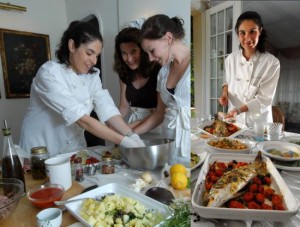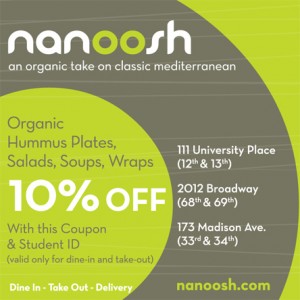I remember the first time I decided to eat vegan for 49 days from the beginning of March until Easter in 2009, as my religion required to. It was not as difficult as I thought it would be, but whenever I went to eat at students cafeteria at my college, my friends would always feel bad because they thought they were tempting me with their food. However, I was not bothered by smells and looks of their meals. There were other, stronger temptations I had to worry about at that time. Here are four types of temptation that you may have trouble dealing with:
1. “Easy temptations.” These are the provocations that tell you to switch from an activity you are reluctant to busy yourself with to a more appealing one. For example, going out with your friends instead of studying, or miss a class to see a movie. I call them “easy” because people usually don’t take long to give in to these temptations, especially if they don’t realize in what consequences going for the desirable may result.
Strategy: learn how to plan your time properly. Know what homework you have to do and when your friends expect to see you. Try to fit both pleasure and necessity into your schedule. Leave enough time for your studies and chores to make sure you complete them and still be able to spend the rest of the day having fun with your peers.
2. Temptations that grow on temptations. To make this clear, think of the last time you stayed out late and had a hard time waking up next morning. First, you knew that you had an early class the following day, but couldn’t resist the attractiveness of continuing your evening past your usual bedtime. Secondly, you were aware of the time you should have woken up, but you still didn’t, and therefore, you were late for class, or even didn’t show up at all, in some cases. Temptations tend to pile up, and as they do, it’s harder to deal with them.
Strategy: avoid collecting problems. Deal with one at a time. Plan your late getaways for the weekends or for the days when you don’t have to be up early next morning. And if you couldn’t resist it, then make yourself face consequences and wake up earlier than you would like to. Be responsible for your mistakes and weaknesses. You’re losing your sleep, but you keep the work going, and maybe next time you’d think twice if the night out is worth feeling tired for the whole following day.
3. Silly temptations with long-term consequences. For instance, wearing light clothes on a cold day with catching a cold and staying in bed for several days with a high fever. Yeah, you wanted to look cool, but there will be a warmer day soon, so wait for it and put up with layers for the time. Wearing high-heeled shoes on a day when you know you will have to walk a lot (for ladies) is in the same category as well. It looks pretty, but is it worth hurting your feet and limping for the next couple of days?
Strategy: try to predict what consequences you can face and listen to the voice of your logical thinking. You know that the day is cold and you may get sick, therefore, you should dress appropriately. Anyway, the impression you’re trying to make will be spoiled by the fact that you’re being silly wearing a jacket and no hat when it’s below zero, and you’re walking or taking a train. Reflect what is more important: to look good that one day or being healthy for the week, and try to find ways to compromise (warmer jacket in combination with a fashionable hat someone will definitely compliment you on).
4. Temptations based on misjudgment. These are the hardest to deal with, as you sometimes don’t realize that they are provocations and not the things you can’t get without. For example, there is a difference between “I need a new purse because the old one is worn out and I feel ashamed to bring it to school,” and “I want a new purse that will match the color of my new shoes, even though I have about ten more purses that I rarely use kept in the closet.”
Strategy: distinguish “need” and “want.” As a college girl or guy, you spend all your time worrying about student savings on food and clothing, skip a meal to go to the movie and walk extra twenty or thirty blocks to avoid paying the bus fare, so why would you waste your limited funds on a caprice? The good thing is: you are still young, and you will eventually grow to see the difference. Just remember: you should start leaning right now.
Overall, managing your temptations and staying in control is a useful skill that will help you get through your college years and your whole life as well. Have fun, but don’t create problems by doing so and keep in mind that if you do have time to hang out with friends and see a movie without a burden of guilt over your unfinished homework or a missed class, it spares you extra stress and allows your grades to stay at desirable level.
Ekaterina Lalo
Visit my blog at http://nycvalues.blogspot.com. Check out www.campusclipper.com for amazing deals and coupons for students and follow us on Twitter @CampusClipper and Fan us on Facebook.

























